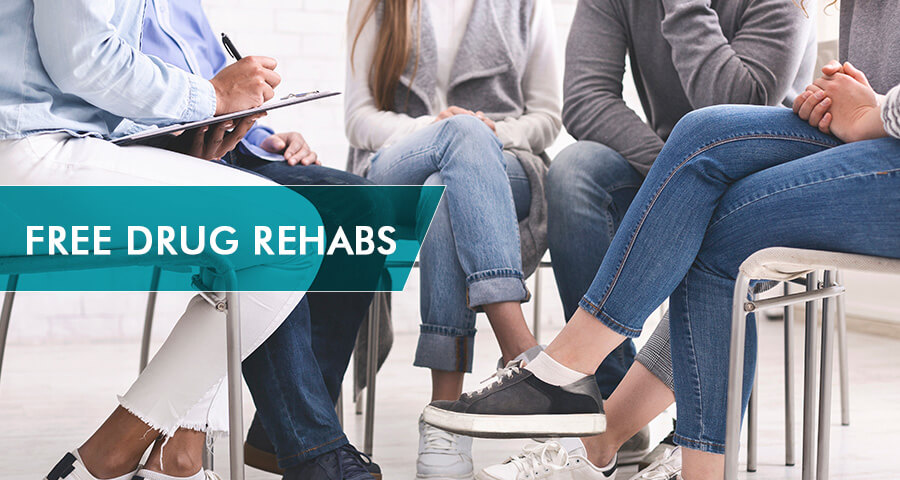
Overcoming any addiction takes a great deal of determination but also requires money to pay for the treatment. Unfortunately, many addiction treatment programs are expensive and unaffordable for recovering people with substance use disorder (SUD).
Table Of Contents:
- What Are The Top 5 Free Drug And Alcohol Rehab Centers?
- Are There Free Addiction Treatment Centers?
- How To Find Free Inpatient Rehab Near Me?
- What Are The Types Of Free Addiction Rehab?
- How To Get Immediate Help Without Insurance?
- What Are The Pros And Cons Of Free Rehabs?
- Who Meets The Criteria To Enroll In?
- What Are The Other Options For Low-cost SUD Treatment?
- How To Enroll In Free Rehab?
- Get Help And Recovery In A Free Rehab

The saddest thing is when someone wants to quit but simply doesn’t have the money to get help. How to get rehab for free? Does a free rehab program work? Is it possible to get into online rehab for free?
There are many resources available for people with SUD motivated to quit but struggling with the cost of addiction treatment. For example, some private free residential drug rehab centers offer no-cost treatment to unemployed, homeless, and impoverished people with SUD. Also, there are government-funded free 30-day rehab programs that provide outpatient care to people with substance abuse problems. In addition, many faith-based organizations run free Christian drug rehab centers.
If a loved one is battling addiction and cannot pay for treatment, this guide will help find the best free program for drug rehab.
Top 5 Free Drug Rehab Centers in the US
Here is a list of the best free long term drug rehab centers as well as short term outpatient programs for substance abuse in the country:

Consolidated Tribal Health Project, Redwood Valley, CA
The Consolidated Tribal Health Project is a treatment center that offers various services to maintain the community’s physical, mental, emotional, spiritual, and social well-being. This program offers several affordable or free drug rehabilitation services, including life skills, anger management, counseling, and behavioral health services for holistic drug rehab. Fees are based on a free or sliding scale model.

Garwood and Associates LLC, Village of Clarkston, MI
This is one of several dual diagnosis treatment centers in the state that offers mental health and substance abuse treatment for adults in an outpatient setting with sliding scale fees based on income to those in need.
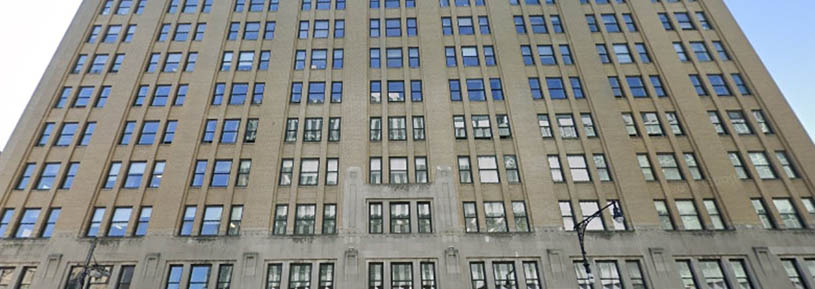
Jacobi Medical Center Chemical Dependency Detox in Bronx, NY
This low-cost or free alcohol rehab and drug treatment center offer outpatient substance abuse recovery for adults through behavioral therapy, group and individual counseling, and relapse prevention. Uninsured clients may qualify for a sliding scale fee.
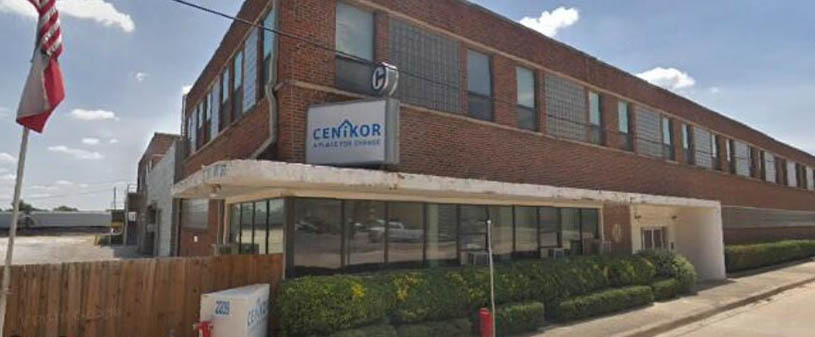
Cenikor Long-Term Adult Inpatient Programs, Fort Worth, TX
This facility offers detox, long-term low-cost or free inpatient rehab, short-term outpatient programs, and sober living services for adults and adolescents.
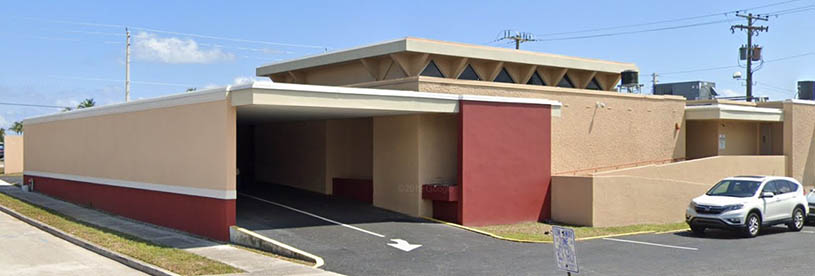
Center for Family Services, West Palm Beach, FL
This facility has more than 25 years of experience in providing alcohol and drug recovery services to individuals and families in need of low-cost and free outpatient rehab.
Is There Such a Thing as Free Rehab for Drug Addiction?
The first big step in drug rehabilitation is acknowledging there is a problem. The second hurdle is finding affordable rehab programs that work. Are there free rehab centers, and how to find a free rehab near me? Yes, fortunately, addiction treatment is not a luxury that only the rich can afford. There are several options available to people who want to get clean but cannot afford to pay.
Some free drug rehab programs are age- or gender-specific. Others are free Christian-based drug rehab centers that rely on faith-based programs. Specific programs provide a safe space for the LGBTQ+ community in recovery.
Some plans are not entirely free but offer deferred payment options or government-supported subsidies. There’s a rehabilitation program for every person with substance use disorder if one knows where to look.
People with SUD struggling with substance abuse should never attempt to quit cold turkey without medical supervision, which can be extremely dangerous. Self-directed detoxing at home based on information obtained from the Internet or friends can lead to serious medical complications and even death. If money is a problem, it’s essential to seek out a free drug rehab center that offers evidence-based treatment staffed by qualified experts. To safely come off drugs and alcohol, steer clear of any unlicensed or uncertified free drug treatment center that offers unproven treatments.

Find Free Drug Rehab Near Me
For people struggling with their finances or the ones who are jobless, homeless, or facing any monetary difficulties, the idea of entering drug rehabilitation programs may seem impossible. However, it does not have to be such a challenging task. They may be trying to find a free rehab near me.
There are several free rehabs that they can join to start their journey towards a sober future. One of the best ways of finding free inpatient rehabs is to search the Substance Abuse and Mental Health Services Administration (SAMHSA). Using SAMHSA’s Directory of Single State Agencies for Substance Abuse Services, one can find the local resource to contact in a particular state and find affordable rehab options.
There are several other options through which one can defray the cost of treatment or get it covered through some other option. These different types and options are discussed in detail below.

Free Drug Rehab Programs: What are the Different Types?
Drug rehab programs that are free are intended to help people who have hit rock bottom with substance abuse but do not have the funds to pay for addiction treatment.
These programs are available nationwide and include medical services to guide people with SUD to a successful recovery.
The Substance Abuse and Mental Health Services Administration (SAMHSA) has collated a national directory of drug and alcohol abuse treatment facilities. This is a great resource to find free inpatient drug rehab centers and outpatient programs. Here are some of the different types of free addiction rehab centers:
State-Funded Drug Rehab
The government funds these free drug rehab facilities through the state budget or federal grants. To qualify for such programs, a person must demonstrate a lack of adequate insurance coverage and a means to pay for treatment out-of-pocket.
The quality and intensity of services offered at government-funded rehabilitation facilities can vary significantly based on available funding. However, in general, they provide the full range of treatments to make a recovery a reality for even the most impoverished people with SUD.
State-funded free rehab facilities often have a long waiting list and may not offer the most up-to-date treatments or counseling services. However, while the amenities are usually basic, the cost advantage is unmatched.
Privately-Owned Rehabs
Many private rehab centers offer free rehab services for people with SUD. Some of these are entirely free, while others offer sliding scale fees or deferred payment options based on income and the person’s ability to pay. Therefore, it is worthwhile to call local facilities and inquire about any free or low-cost programs they offer.
Non-Profit Rehabilitation Facilities
Some organizations run on a non-profit basis and offer drug rehab for free. They support people living with addiction, increase awareness, and advocate for legislation to help more people with SUD.
Some notable non-profits that help disadvantaged people with substance abuse problems include The Amy Winehouse Foundation, a teen rehab center for young people battling addiction, and Gearing Up, a facility for women in recovery. Phoenix House offers inpatient facilities and sober living for those in transition. Rosecrance has both inpatient and outpatient addiction services for adults, adolescents, and children.
Faith-Based Free Drug and Alcohol Rehab
In addition to the well-known Alcoholics Anonymous and Narcotics Anonymous, many spiritual recovery centers offer addiction treatment to those with a strong religious mindset. An excellent place to find free Christian rehab centers is within the local church and community. Many churches are associated with recovery centers or offer counseling and free drug rehab for couples and individuals, support group meetings, life skills development programs, and other free resources for people with SUD.
Free Online Rehab
Many substance abuse forums on the Internet offer mutual support to people with SUD and science-based addiction recovery programs. Participants help each other resolve problems and develop the strength to change their lives through free drug rehab classes, handbooks, videos, and other online resources.
These programs are confidential and effective but require discipline and determination as they are typically self-administered.
Free Drug Rehab Clinics for Immediate Help
In case of an emergency related to substance abuse, dial 911 immediately. In non-emergency situations, certain people are more likely than others to get immediate addiction help. Acceptance into state-funded free outpatient drug rehab is based on certain criteria. The person seeking treatment must demonstrate a lack of insurance and the inability to pay for drug rehab. Domicile may also affect the availability of immediate help to uninsured individuals. Most free government rehab centers require a person to be a resident in the state where treatment is sought. Pregnant IV drug abusers and women who have given birth in the past year may receive priority drug abuse treatment. Veterans may also receive preferential acceptance into specific programs. Followers of the Christian faith are more likely to be accepted quickly into free catholic rehab centers.
If a SUD person does not have insurance and needs immediate help, it is a good idea to contact programs where acceptance is likely a priority based on factors such as income, domicile, gender, veteran status, and faith.
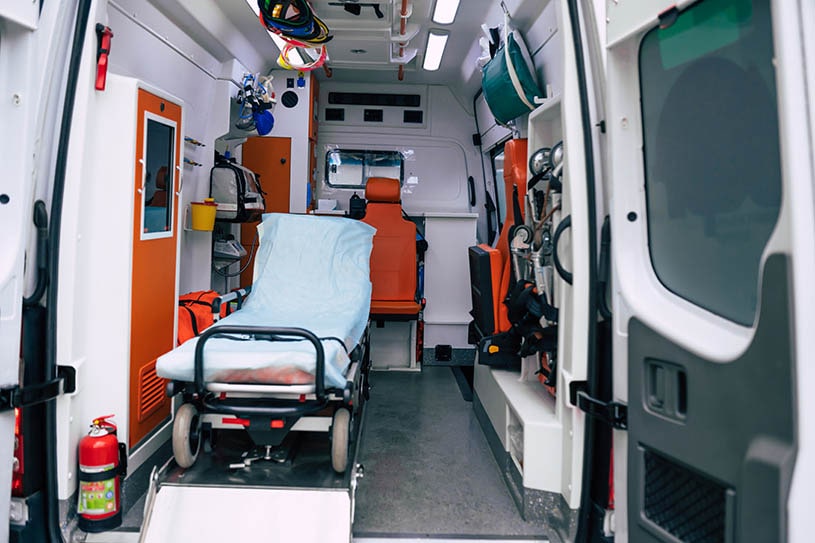
Pros and Cons of Free Drug Rehab Centers
The essential advantage of free rehab centers is that they offer addiction recovery programs to those who cannot afford to pay for their treatment. People with SUD can expect at least a minimum standard of care at these centers. Free rehabilitation programs are typically managed by competent, reliable, and experienced personnel.
Advantages
The two significant advantages of state-funded or free rehab centers are price and proper care.
- Price: The cost of state-funded and free drug rehab programs is a distinct advantage. Private drug rehab is quite expensive, even for people who have the money. State-funded and free plans are certainly a godsend for those who cannot afford paid care. These programs offer access to alcohol or drug addiction treatment to those who need it most. However, this price advantage may not be alluring to someone with robust insurance coverage to treat drug abuse. With insurance, private care can be as inexpensive as state-funded or free treatment programs.
- Care: The second significant advantage is the relatively good care provided to people with SUD seeking alcohol or drug addiction treatment at these centers. This is because the full range of treatment options needed to make a full recovery is usually available through these programs. The personnel at these centers are trained to make the best of the limited resources available to them.
- Location: In terms of location, there are many free rehabilitation facilities all across the country. This makes it very convenient for anyone seeking free rehabilitation to avoid going out of their state for treatment. Almost all free rehabilitation facilities offer basic addiction treatment services that are provided to clients based on their specific needs and requirements.
Disadvantages
The cons of free or state-funded treatment are far more than the pros, which is not unexpected. Here are some of the difficulties of free rehab for drug addiction:
- Outdated Equipment and Facilities: The only aspect of free or state-funded rehab treatment that is arguably at par with paid treatment is the personnel who care for people with SUD. Unfortunately, free rehab centers do not have access to the latest equipment, the newest technology, or the best facilities, which can make the recovery process easier and faster. This is also true for specific new therapies that may be available at more up-to-date facilities but are lacking at state-funded and free centers.
- Long Waiting List: Being virtually free, rehab centers funded by the state attract many people with SUD and are often overwhelmed in terms of the resources available. This means there is a constant queue of people waiting to be admitted to these programs. Studies have shown that the drug treatment outcomes for people on waiting lists do not compare favorably to those enrolled in treatment promptly. Drug addiction is a matter of life and death for some people in need of immediate care. Lack of timely treatment can result in more severe addiction, and people with SUD may end up hurting themselves or causing permanent damage while they are on the waiting list for free rehabilitation programs.
- Absence of Counseling and Other Support Services: State-funded and free drug rehab programs usually focus on the physical aspect of beating the addiction and do not always encompass the psychosocial element of recovery. The psychological recovery from addiction is as important, if not more important. If the body is treated and the mind is not addressed, the chance of relapse is high, and all the effort put into rehab could be rendered useless.
- Lack of Obligation: People with SUD who receive treatment through free or state-funded rehab programs usually do so of their own accord. This means they are free to leave anytime they want. This means that many people leave free drug rehab programs without completing treatment. Studies have examined the relationship between the duration of addiction treatment and the outcome and found that longer retention in free outpatient and residential drug rehab programs is associated with improved outcomes. Some people go in and out of rehab, while others end up dealing with their addiction on their own without receiving any help at all.
- Privacy: In general, there tends to be distrust, especially by people who are suffering from drug addiction, towards government institutions. People with SUD do not feel comfortable sharing information about their life, their habits, and the people they know. There is always a fear that they will get into trouble with law enforcement as a result of the information they provide to caregivers at state-funded drug rehabilitation centers. Addicts are also wary of certain people they might encounter at these rehabilitation centers.
- Stressful Ambience: Free or state-funded treatment almost invariably means there are not many options available to people with SUD. Indeed, there are no customized treatments such as outpatient services or home-like comforts at free residential drug rehab centers. This type of atmosphere is not the most conducive to a quick and stress-free recovery.
- Eligibility Limitations: Since state-run rehabs or free rehabs have tight budgets and may not have adequate fundings, they may limit eligibility to conserve the available funding. This might cause them to cater to only specific populations such as veterans, pregnant mothers, HIV patients, and similar ones.
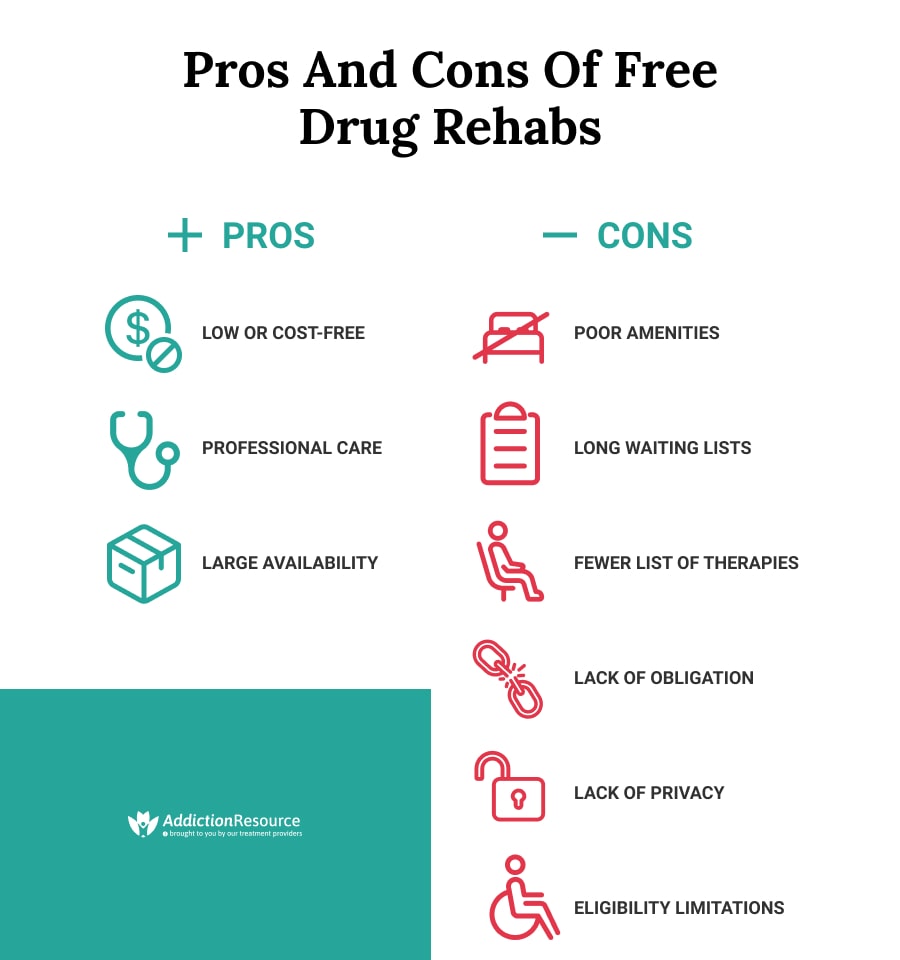
Who Meets The Criteria To Enroll in Free Drug Rehabs?
Most of the free drug rehab centers have some requirements and prerequisites which must be met by clients for them to be considered for qualification in the rehab facility.
The following individuals may meet the criteria to be enrolled in free drug rehab:
- Individuals who show a genuine inability to pay. This is probably the most important qualifying factor.
- Veterans who are seeking addiction treatment.
- Pregnant women who are addicted.
- Pregnant women who are abusing IV drugs,
- Women who are addicted to drugs or alcohol within one year of giving birth.
- Being a resident of a state in which treatment is being sought.
- Being a member of a faith community in a state that runs a faith-based treatment center.
How to Enter Rehab at Low Cost
Some rehabilitation facilities do not offer free long-term drug rehab services but do offer payment models for clients who cannot afford addiction recovery otherwise, including uninsured or inadequately insured individuals who are self-pay.
Here are some options for low-cost substance abuse treatment:
- Sliding Fee Scale: This payment model is based on the client’s ability to pay. It is not truly drug rehab help-free. Instead, it takes into account the client’s income and the federal government’s poverty guidelines to determine the reduced fee that should be charged. To qualify for a sliding scale fee structure, recovering people with SUD must provide documentation about insurance, income, family/household size, and residency.
- Government-Funded Low-Cost Drug Rehabilitation: Qualifying for state-funded drug and alcohol rehabilitation services usually requires a person to demonstrate legal residence in the United States and domiciled in the state, lack of income and insurance, and medical records indicating the need for treatment. State government websites are useful resources to find information on rehab centers that are free or offer low-cost recovery programs.
- University Research Studies in Drug Rehabilitation: Researchers conduct studies and trials to compare different treatments or develop new ones with the hope that their findings can translate into recommendations for addiction treatment providers. People who use illicit substances may qualify to participate in clinical trials to help scientists better understand the effects of drug use. Treatments received during clinical trials are free of cost. If a search for free long-term rehab centers has yielded no results, it is worth trying the National Institute on Drug Abuse clinical trial locator to identify any potential studies in which to participate.
- Scholarships: Some organizations offer scholarships to people who require addiction treatment but are unable to afford it. SAMHSA also offers grants for addiction treatment that can be provided through the state or rehab facility.
- Insurance: Various insurance companies also cover the cost of addiction treatment and rehabilitation. They may not cover the complete cost of treatment but still pay for counseling sessions, lodging, and transport.
- Loans: There are certain organizations that provide loans specifically for funding addiction treatment of individuals. These may be offered at no interest or very low-interest rates, which makes their paying back easier and convenient.
- 12-Step Support Groups: 12-step support groups and meetings offer a free and convenient way for individuals struggling with addiction during and after their rehabilitation. They may not be considered a sole option for treatment, but they definitely aid the process of recovery and in avoiding relapse.
- Friends And Family: Friends and family can also be considered a source of financial help when one cannot find a free drug rehabilitation center. Many people may consider taking a loan from them to avoid the embarrassment of asking for money. But one’s loved ones should be given a chance to be involved in their recovery process.
How to Enroll in a Free Drug Rehabilitation Center?
Here is a step-by-step guide to finding and enrolling in a free drug rehabilitation center:
- Collect all documents to verify income, insurance, legal residence, and state domicile.
- Use our treatment finder tool to find government-funded free drug rehab near me.
- Search the directory for state-wise resources.
- Call local churches or other faith-based organizations for free drug addiction rehab programs.
- Talk to private addiction treatment centers in the local area about sliding scale fees.
- Lookup for possible clinical trials.
- Sign up for drug rehab for free online.
After identifying a suitable program, find out the admitting criteria, and if qualified, call the program manager and take the first step to a drug-free life.
Hope Without Commitment
Find the best treatment options. Call our free and confidential helpline
Most private insurances accepted
Enroll In A Free Drug Rehab Today To Start Your Recovery Journey
Not having sufficient funds is not a good enough reason to defer addiction treatment. The long-term cost of substance abuse is far higher than the immediate cost of paying for drug rehab, and there are plenty of free alcohol rehab centers where people with SUD, having the question of is there a free rehab near me, can get help.
Find Drug Rehabilitation Centers Near You Anywhere In the US
Addiction Resource team has compiled an extensive list of the top drug rehabilitation facilities around the country. Use our locator tool to find the best centers near you.
Page Sources
- Home - SAMHSA Behavioral Health Treatment Services Locator. SAMHSA. (2021), https://findtreatment.samhsa.gov/.
- Directory of Single State Agencies (SSA) for Substance Abuse Services. SAMHSA. (2016). https://www.samhsa.gov/sites/default/files/ssadirectory.pdf.
- 2018 National Directory Of Drug And Alcohol Abuse Treatment Facilities. SAMHSA. (2018). https://www.samhsa.gov/data/report/2018-national-directory-drug-and-alcohol-abuse-treatment-facilities.
- Chun, J., Guydish, J. R., Silber, E., & Gleghorn, A. (2008). Drug treatment outcomes for persons on waiting lists. The American journal of drug and alcohol abuse, 34(5), 526-533. https://www.ncbi.nlm.nih.gov/pmc/articles/PMC2766557/
- Zhang, Z., Friedmann, P. D., & Gerstein, D. R. (2003). Does retention matter? Treatment duration and improvement in drug use. Addiction, 98(5), 673-684. https://www.ncbi.nlm.nih.gov/pubmed/12751985


 Reviewed by:
Reviewed by:  Written by:
Written by: 











 FindTreatment.gov
FindTreatment.gov